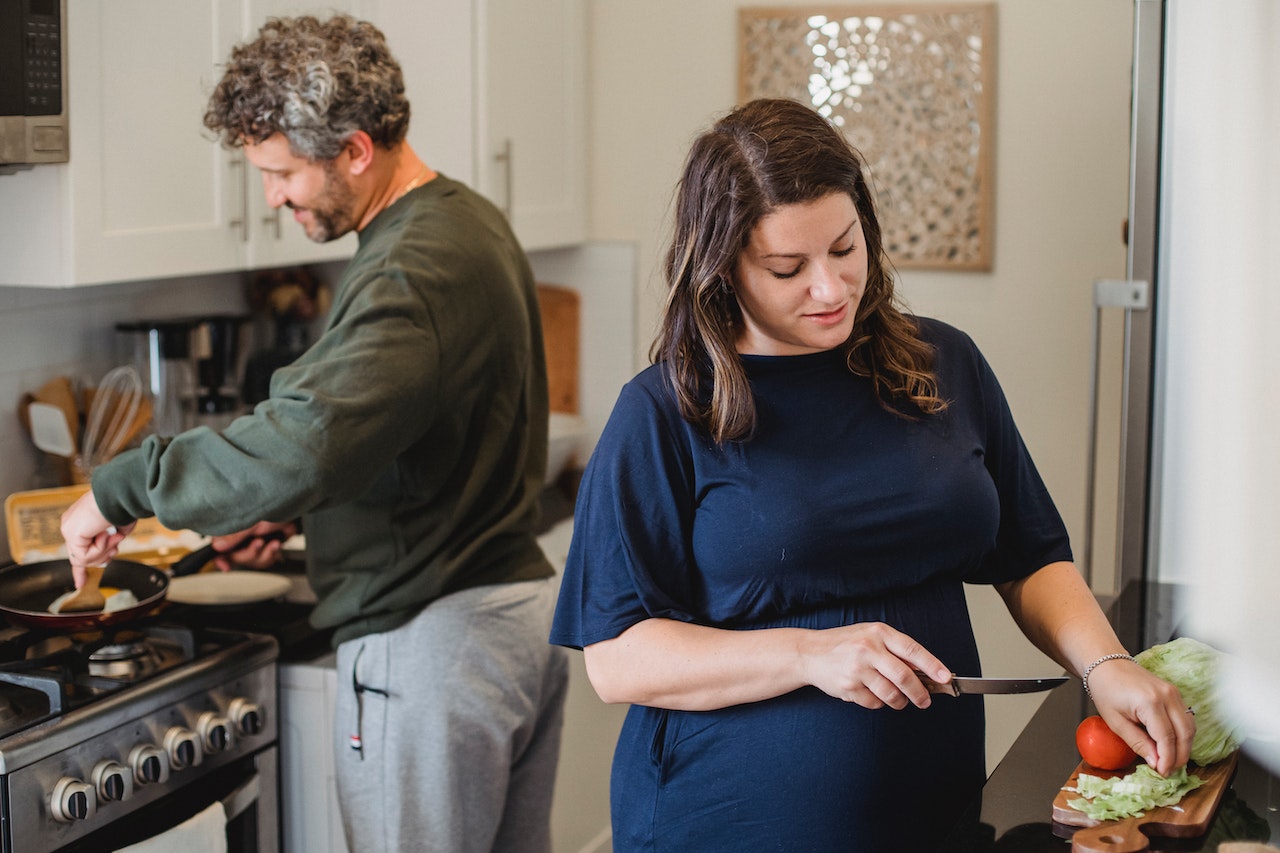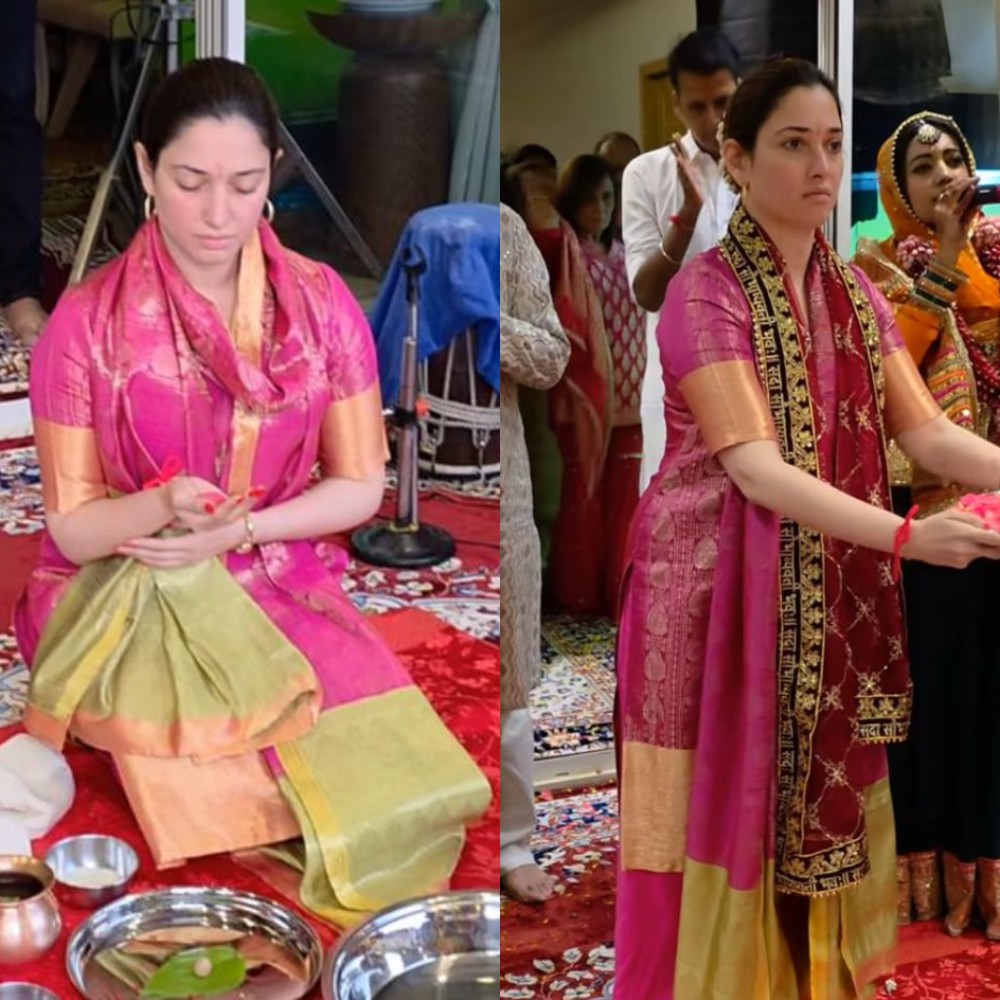18 Tips for Getting Back Together After Separation: Rekindle Love
Discover how to reconnect, establish trust, and repair your relationship. Explore tips for getting back together after separation and rekindle your strong bond.

Love frequently brings about unforeseen turns, and the process of "getting back together after separation" is a relic of the strength of love and the tenacity of the human heart. It is a tale of vulnerability, growth, and the courage to face the shadows of the past head-on. Those who dare to take this path find themselves on a calming and reflective journey, guided by the stars of compassion and repentance. This road of reconciling after a split necessitates reflection, a readiness to own one's shortcomings, and the fortitude to accept change. When two souls find comfort in each other's arms once more, overcoming simple familiarity and forging an unbreakable bond, it is a magnificent dawn.
This article will discuss legal separation, the likelihood of reconciliation, and strategies for conquering challenges to rekindle your relationship with your ex. Our contributor Chris Pleines, a dating expert from DatingScout, an online dating site, says, “To avoid mistakes when reconciling with your partner, be respectful, forgiving, patient, and committed to rebuilding your relationship. Avoid begging, blaming, controlling, rushing, or seeking revenge.”
What is Legal Separation?

A couple can live apart and still be regarded as legally married or in a domestic partnership under the terms of a legal separation. It provides a formal framework for couples to address crucial aspects of their relationship, such as finances, child custody, and property division, without terminating their marital or domestic partnership status. Unlike divorce or dissolution, where the legal ties are severed entirely, legal separation in a relationship offers a middle ground for couples who may need time apart to evaluate their relationship or work through personal issues.
The couple engages in a series of conversations and compromises to set up rules for different aspects of their separation, such as child custody arrangements, child support, alimony, division of assets and debts, and the assignment of mutual duties during the legal separation process. Legal protection and clarity for both parties are two of the major advantages of formal separation.
With the aid of a binding separation, spouses may work through the difficulties of their relationship in a way that works for their particular situation. It offers a sense of structure and order during a period of uncertainty and can help minimize misunderstandings and conflicts. It is crucial to speak with a family law professional or seek local legal counsel because it differs in its specifics based on the state or nation in which it is pursued.
Couples may have the opportunity to stand back, gain perspective, and consider moving back in after separation. It provides an alternative to divorce or dissolution and can be an avenue for couples to work on their issues while maintaining certain legal protections.
The purpose of legal parting is to help partners manage the complexity of their relationship in a way that is appropriate for their particular situation. It is an arrangement that helps couples go through an organized separation process.
Is It Possible to Get Back Together After Separation?

Absolutely! Reconciliation after separation is possible. Many married couples have managed to get back together and strengthen their bonds. Many couples have successfully reunited and rebuilt their relationships stronger than ever before. While every situation is unique and the outcome may vary, the potential for reconciliation exists when both individuals are willing to work toward it.
Reconnecting with your ex after separation requires open communication, honesty, and a genuine commitment to addressing the issues that led to the separation in the first place. It frequently entails a process of introspection, personal development, and the readiness to make required adjustments.
Couples who have successfully reconciled after separation often engage in couples therapy or seek professional guidance to navigate the challenges they face. These interventions can provide a safe space to address underlying issues, improve communication skills, and develop strategies for rebuilding trust and intimacy.
Sharing a few tips on reconciliation, our contributor Jonathan Hartley, who is a relationship coach, says, “Healing severed ties requires reflection before contact. Ensure you've addressed what contributed to the separation before reengaging. Then make listening and understanding a priority rather than demands or defenses. Patience, empathy and accountability are key - change happens gradually. Focus on the love underpinning the relationship as motivation.”
It's vital to remember that not every couple will find that reconciliation is the best or healthiest course of action. In some cases, the separation may have been necessary for personal growth, and moving forward individually might be the best option. Each person must assess their circumstances and determine if reconciliation is truly what they desire.
It's also essential to manage expectations during this process. Rebuilding a relationship after separation takes time, effort, and a shared commitment from both partners. It may involve addressing past hurts, learning from mistakes, and developing new ways of relating to one another.
Ultimately, the possibility of getting back together after separation depends on the individuals involved and their willingness to invest in the relationship. With genuine effort, understanding, and a shared desire to rebuild, couples can navigate the path toward reconciliation and create a stronger, more fulfilling partnership.
18 Tips How to Overcome the Challenges of Getting Back Together After Separation
1. Relay on Your Gut Feeling

This requires you to listen to your inner wisdom and to put your faith in your instincts, even when they may go against logic or other external opinions. While objective reasoning and assembling data are significant, your premonitions frequently give important experiences that reasonableness alone may disregard. You can tap into your intuition and inner wisdom by listening to your gut and trusting the signals and insights that come to you.
It can assist you with settling on choices that are more bona fide to your actual selves and lined up with the most profound cravings and values. Be that as it may, it is critical to gauge the upsides and downsides, think about reasonable factors, and look for proper exhortation when vital.
2. Be Honest with Yourself

Being honest with yourself is essential when considering getting back together after separation. It includes profound thoughtfulness and self-reflection to grasp your intentions, wants, and sentiments. Outside factors like cultural assumptions or family suppositions can impact your choice, so it means quite a bit to make a stride back and rethink your decisions. Assuming you find it trying to find the responses inside yourself, it very well may be useful to trust in somebody you trust. conversing with somebody who comprehends your conditions can give a new viewpoint and assist you with seeing things all the more plainly.
3. Communicate Properly with Your Partner

When preparing for reconciliation, it is essential to communicate effectively with your partner. It includes examining assumptions, resolving previous issues, and making a place of refuge for transparent discourse. You can cultivate a relationship that is both healthier and more fulfilling by putting communication first and actively listening to each other. When separated couples reunite, it's important to have open conversations in which you can both share your feelings.
Make an effort to spend quality time together and place a high value on communication to recreate the early days of your relationship when communication was the foundation of your connection. By resuscitating powerful correspondence, you can revamp trust, fortify your association, and guarantee that both feel appreciated and comprehended.
4. Be Patient

Letting go of the past, and learning from it takes time and space. When reuniting, it's important to avoid rushing into things and respect the fact that both of you need time to adjust and recover emotionally. It's pivotal to give each other the important reality to deal with the partition, think about self-awareness, and mend from any injuries that might have happened. It's possible that rushing the process will prevent genuine reconciliation and bring back unresolved issues in the future.
You can foster an atmosphere of understanding and respect by practicing patience, allowing both partners to rebuild their relationship at their own pace. To build a stronger foundation for the future, patience provides the necessary space for emotional healing and development.
5. Learn from Past Mistakes

Learning from past mistakes is an important aspect of personal growth and relationship development. It involves recognizing and taking responsibility for your actions, identifying patterns, and making positive changes. By understanding the role you played in the challenges faced during the previous relationship, you can gain valuable insights and make positive changes moving forward. It allows you to identify patterns and behaviors that may have contributed to the separation.
When considering getting back together after a divorce, it's important to actively apply the lessons learned from the past. This means implementing positive changes, such as improving communication, addressing conflicts constructively, and prioritizing emotional and physical intimacy. By demonstrating growth and a willingness to learn from past mistakes, you show your commitment to creating a healthier and more fulfilling relationship.
6. Seek Professional Guidance

Seeking professional guidance is a valuable step for separated couples considering getting back together. It offers a fresh perspective, helps break negative patterns, fosters personal growth, and assists in making an informed decision. Through counseling, you may develop yourself and as a couple by learning from your past experiences. It offers a secure and encouraging setting where you may examine your emotions, worries, and desires. You may navigate through complex emotions, discover underlying problems, and create efficient communication and problem-solving skills with the assistance of a professional.
Counseling also facilitates the healing process by providing a space to address and process the hurt, pain, and resentments that may have accumulated during the separation. Both partners should actively participate and commit to the process to bring clarity, foster personal and relational growth, and help you make a decision that aligns with your hearts and values.
7. Give Each Other Space
Respecting personal space is essential when considering getting back together after a separation. It allows both partners to process their emotions, reflect on the relationship, and work on personal growth. By giving each other space, you demonstrate trust and respect for each other's journey, showing that you acknowledge the importance of individual growth and understand that personal development contributes to the overall health of the relationship. When the time comes to reunite, the space given allows for a healthier and more balanced partnership, with both partners having had the opportunity to work on themselves, gain clarity, and reflect on their role in the relationship.
8. Rediscover Common Interest

Rediscovering common interests is an important way to strengthen your connection. It provides an opportunity to bridge the gap and reignite the bond between you. Participating in things that you both find enjoyable may arouse joyful feelings and a sense of excitement, enabling you to connect more deeply and reignite the spark that may have died during the separation. By exploring shared interests, you create opportunities for meaningful conversations and shared experiences, providing a chance to reconnect, communicate, and spend quality time together.
9. Show Appreciation

Showing appreciation and celebrating progress is essential when considering getting back together. You may build a supportive and caring environment that promotes a sense of love, validation, and stability in the relationship by showing gratitude for your partner's efforts and admirable traits. Celebrating the progress made along the way is equally important. By celebrating these milestones, you reinforce the positive changes that have occurred and inspire further growth and development. When expressing appreciation, be specific and sincere. Highlight the qualities or actions that have had a positive impact on you or the relationship.
10. Take Responsibility

In every relationship, accepting responsibility is a crucial first step since it calls for sincere reflection and a readiness to face one's own shortcomings, errors, and behaviors. Accepting responsibility entails understanding the effects of one's choices and actions, displaying empathy and compassion, and creating a space for reconciliation and trust-building. It's also crucial to commit to making constructive changes, such as resolving destructive behaviors, developing communication skills, or pursuing personal development through counseling or self-improvement.
11. Be Flexible

When reuniting after a separation, it is essential to be flexible and willing to adapt to create a healthier and more fulfilling relationship. Being open to adapting involves letting go of old patterns or habits that may have contributed to the separation and being receptive to new perspectives, ideas, and approaches that can enhance the quality of the relationship. A healthy and happy relationship depends on effort and cooperation, which compromise encourages. Embracing the changes required involves recognizing that personal growth and improvement are necessary for the relationship to thrive. Effective communication and a readiness to hear one another's needs and viewpoints are prerequisites for flexibility.
How to Rebuild Your Marriage During a Separation
12. Re-establishing Emotional Connection

To rebuild a stronger and more rewarding relationship after a breakup, it is crucial to be adaptable and flexible. Letting go of old routines or behaviors that may have led to the breakup entails being open to change, as does being receptive to fresh viewpoints, concepts, and methods that might improve the quality of the partnership. A healthy and happy relationship depends on effort and cooperation, which compromise encourages. Recognizing that personal development and progress are essential for the partnership to flourish includes accepting the adjustments that must be made. Effective communication and a readiness to hear one another's needs and viewpoints are prerequisites for flexibility.
13. Reignite the Spark with Dating

Rebuilding a relationship after a breakup requires going on dates. It offers a chance to start over, get to know one another once more, reignite the romance, and forge new shared experiences. It may be advantageous to approach the reunion as though it were a stranger. The idea is to show yourself professionally by dressing appropriately. A crucial aspect of mending a relationship after a breakup is going on dates.
The environment may be improved and a distinct vibe created for the date by dressing up. Building and maintaining the emotional connection requires consistency and regularity. When going on dates, be genuinely curious and eager to learn.
14. Do Not Rush into Physical Intimacy

It is important to prioritize emotional connection before rekindling physical intimacy when thinking of reconciling after separation. This allows for a deeper understanding of each other's needs and motivations, creating the opportunity for excitement and anticipation while fostering a stronger emotional bond.
Rushing into physical intimacy without addressing the underlying emotional aspects may lead to temporary satisfaction but could hinder the growth and stability of the relationship in the long run. A period of no physical contact may also infuse the relationship with excitement and expectation, fostering a stronger emotional and intimate connection.
15. Practice Forgiveness

When two people get back together after a breakup, forgiveness is crucial. It entails letting go of old grudges, resentments and urges for vengeance. It enables you to start over, restore closeness, and establish trust. It enables you to start over, restore closeness, and establish trust. It also supports emotional recovery, stress reduction, and relationship optimism. Self-reflection, empathy, and open communication are all necessary for the lengthy and laborious process of forgiveness. It enables you to build a healthy emotional environment devoid of anger and animosity. It is a gift you offer to yourself and your relationship.
16. Be Realistic

Being realistic is an important mindset to maintain when moving back in after a separation. It involves acknowledging and processing emotions while also considering the realities of the relationship. By combining emotional intelligence with rational thinking, you can make informed decisions and take proactive steps toward creating a fulfilling and sustainable partnership. By balancing your emotions with a realistic mindset, you can navigate the challenges and work towards a healthier and more satisfying relationship.
17. Do Not Dig into the Past

Talking about past mistakes, grievances, or blame can lead to a negative atmosphere and prevent both partners from fully embracing the opportunity for a fresh start. Instead, it is more productive to focus on the future and discuss mutual goals and plans. Engaging in open and constructive conversations about shared aspirations and desires helps foster a sense of unity and purpose.
When getting back together after a separation, it is important to prioritize growth and improvement rather than dwelling on past grievances. By shifting the focus to the future, both partners feel motivated and supported and can build a shared vision and work together as a team. If necessary, seeking professional guidance can provide a safe space to address past concerns while maintaining a forward-looking mindset.
18. Involve Your Kids

When parents decide to reunite after a separation, it is important to consider the emotions of their children. To create a supportive and open environment, honesty and transparency are key. Honesty and transparency are essential for fostering a welcoming and open workplace. Ensure them that their emotions are legitimate and that you and your spouse are devoted to resolving any issues.
Manage expectations and help them understand that the process of rebuilding the relationship will take time. Seek professional help to facilitate communication and provide support for your children. By considering your children throughout the reconciliation process, you can help them navigate their emotions and foster a sense of stability and security.
Conclusion
Getting back together after separation is a difficult decision that calls for thoughtful deliberation, reflective thinking, and honest discussion between the partners. It is crucial to face the circumstance with tolerance, sincerity, and a readiness to draw lessons from the past. You may cultivate the link that initially drew you together by re-establishing an emotional connection, finding shared interests, and expressing gratitude for one another. Getting expert advice can also offer insightful advice and assistance during this crucial moment. Making decisions that meet with your values and beliefs is essential to living a happy and healthy life.
Contributor: Chris Pleines, Dating expert - Datingscout
Jonathan Hartley, Relationship Coach - Positive Dating

41 Burning Questions to Ask Your Ex for Clarity, Closure, Or a Fresh Start

Tips on How to Make Your Ex Miss You After a Breakup





 JOIN OUR WHATSAPP CHANNEL
JOIN OUR WHATSAPP CHANNEL













































